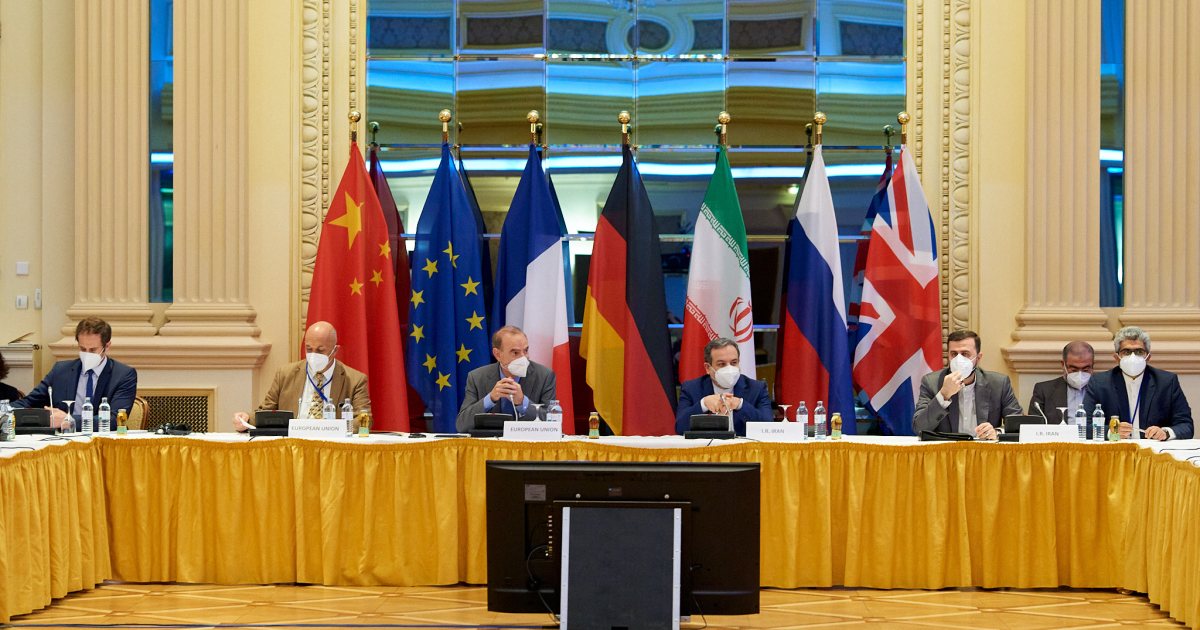The French Foreign Ministry said that "significant differences still exist in the talks aimed at reviving the Iranian nuclear agreement signed in 2015," while the Director-General of the Atomic Energy Agency stressed that the revival of the nuclear agreement must wait for the formation of a new Iranian government.
French Foreign Ministry spokeswoman Agnes von der Muhll said in a statement that "negotiations have become more difficult, with access to a discussion of issues", which she described as complex, and that "important points of contention still exist, and courageous decisions must be taken quickly because time is not on anyone's side."
The Director-General of the International Atomic Energy Agency of the United Nations, Rafael Grossi, said yesterday, Tuesday, that "the negotiations taking place in Vienna for weeks have dealt with complex and very sensitive technical issues, but what is required is the political will of all parties."
"Everyone knows that, at this point, it will be necessary to wait for the new Iranian government," Grossi said in an interview with La Repubblica newspaper, in response to a question about the stage of the talks on reviving the agreement.
Grossi was apparently referring to Iran's presidential elections scheduled for Friday.
The new president is expected to form his government by mid-August.
Incumbent President Hassan Rouhani's term of office ends on the 3rd of August.
In a related context, Mahmoud Vaezi, head of the Iranian president's office, said that the decision to revive the Iranian temporary monitoring agreement with the nuclear inspectors of the International Atomic Energy Agency, falls on the shoulders of the country's Supreme National Security Council, according to Bloomberg news agency.
Vaezi added, today, Wednesday, that the agreement can be revived if we approach our demands in the negotiations, referring to the talks between Iran and world powers to revive the nuclear agreement.
Iran says there is "little time left to revive the nuclear deal".
The sixth round of talks to revive the nuclear deal resumed in Vienna on Saturday between Iran and world powers.
The UN agency is not directly involved in the negotiations but has been called in to verify and continue inspections in the country.
Swiss mechanism
Late on Tuesday, a Swiss minister announced that Washington had expressed its willingness to speed up the pace of delivery of goods through a Swiss humanitarian mechanism, which since last year has allowed Iran to deliver goods that are not subject to US sanctions.
"This mechanism is working, but it is not being used enough," Swiss Foreign Minister Ignacio Cassis said - at a press conference after US President Joe Biden met in Geneva with Swiss President Guy Berelman.
We have received with satisfaction the willingness of the United States to continue to support this mechanism for the benefit of the Iranian people.
Cassis said that the system "is in place and working, but it is rarely used because there are financial transfers that are still suspended, and here there is a desire on the American side to lift these disruptions and allow the use of this existing channel."
This payment system is intended for Swiss companies active in the food, pharmaceutical and medical sectors, and allows them to send aid to Iran.
Tehran has been subject to strict US sanctions since the United States withdrew in 2018 from the international agreement on Iran's nuclear program.

